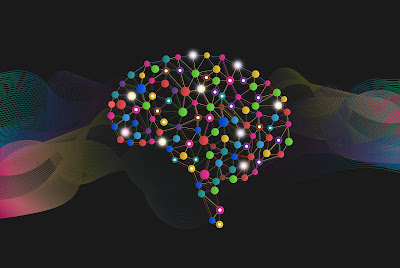Mysteries of Sleep: Sleep and Brain Health
Mysteries of Sleep: Sleep and Brain Health
Did you know that sleep can work wonders for your brain? It's not just about getting some shut-eye; your brain benefits immensely from a good night's sleep. In recent years, scientific research has revealed a profound connection between sleep and brain health.
Today, we will explore the mysterious realm of sleep and
uncover the secrets that can unlock the full potential of your brain. We will
discuss the importance of sleep for brain function, delve into the intricate
relationship between sleep and memory consolidation, and understand why a good night's sleep is essential for overall well-being.
The Basics of Sleep:
Before we dive into the brain's relationship with sleep, let's briefly understand the sleep cycle. Sleep consists of various stages, including Non-Rapid Eye Movement (NREM) Sleep and Rapid Eye Movement (REM) Sleep.
Non-Rapid Eye Movement (NREM) Sleep
Non-Rapid Eye Movement (NREM) Sleep dominates earlier in the night. It consists of three stages:
N1 (Stage 1): The initial stage, which is between wakefulness and sleep. People may feel drowsy, and it's easy to wake them up. This stage is characterized by slow eye movements and reduced muscle activity.
N2 (Stage 2): A deeper stage where the body relaxes further. Brain waves slow down, and brief bursts of rapid brain activity called sleep spindles and K-complexes occur. This stage constitutes most of the sleep time.
N3 (Stage 3): Also known as slow-wave sleep or deep sleep. Brain waves become even slower, with increased production of delta waves. It is challenging to wake someone up during this stage. N3 plays a vital role in physical restoration, memory consolidation, and overall well-being.
NREM sleep is essential for physical restoration, memory consolidation, and overall well-being.
(Stickgold & Walker, 2007, Siegel, 2009)
Rapid Eye Movement (REM) Sleep
Rapid Eye Movement (REM) Sleep is a stage of sleep
characterized by rapid eye movements, vivid dreams, and heightened brain
activity. It alternates with NREM sleep and is associated with memory
consolidation, emotional regulation, and learning.
During REM sleep, the body is temporarily paralyzed, while the brain activity resembles wakefulness. It becomes more prominent as the sleep cycle progresses, and it is when most vivid dreaming occurs.
(Stickgold & Walker, 2007, Siegel, 2009)
Functions of Sleep:
Memory Consolidation: Building Bridges Between Sleep and Learning
One fascinating area of sleep study is the link between sleep and memory consolidation. During sleep, the brain consolidates and strengthens newly acquired information, transferring it from short-term memory to long-term memory storage. This process, known as memory consolidation, is essential for learning and retaining new knowledge (Diekelmann & Born, 2010, Rasch & Born, 2013).
REM sleep is particularly associated with the consolidation of procedural memory, which involves learning and remembering motor skills and tasks. On the other hand, NREM sleep, especially the deep N3 stage, is closely linked to the consolidation of declarative memory, which refers to the memory of facts, events, and general knowledge. Lack of quality sleep, which disrupts either stage, can hinder this process, leading to difficulties in memory recall and cognitive performance (Diekelmann & Born, 2010, Rasch & Born, 2013).
The Glymphatic System: Cleaning Up the Brain During Sleep
Another remarkable discovery in sleep research is the glymphatic system, which is a waste clearance system in the brain. It utilizes glial cells and cerebrospinal fluid to remove waste products in the brain during sleep. When we sleep, cerebrospinal fluid (CSF) is pumped into the brain along the perivascular spaces surrounding blood vessels, facilitated by a kind of glial cells called astrocytes. The CSF helps flush out waste products and toxins that have accumulated between brain cells during wakefulness. This cleansing process is crucial for maintaining brain health and preventing the buildup of toxic substances associated with neurodegenerative diseases (Xie et al., 2013).
Sleep and Its Relationship with Attention, Cognitive Performance, and Emotions
Insufficient sleep can have detrimental effects on brain functions. One prominent effect of sleep deprivation is impaired attention and concentration. Studies have shown that sleep-deprived individuals have reduced vigilance, slower reaction times, and increased lapses in attention. Lack of sleep can hinder the brain's ability to sustain focus and efficiently process information, leading to decreased productivity and increased errors (Drummond et al., 2005).
Additionally, sleep deprivation can hinder executive functions, including decision-making, problem-solving, and creative thinking (Harrison & Horne, 2000).
Inadequate sleep can also lead to emotional disturbances. Sleep-deprived individuals often experience increased irritability, mood swings, and a generally negative emotional state (Gujar et al., 2011).
Tips for Improving Sleep Quality:
Now that we understand the importance of sleep for brain health, let's explore some practical tips to enhance sleep quality:
1. Establish a Consistent Sleep Schedule:
Maintaining a regular sleep schedule helps regulate your body's internal clock and promotes better sleep quality. Aim to go to bed and wake up at the same time every day, even on weekends (Mawer, R, 2020).
2. Create a Soothing Sleep Environment:
Ensure your sleep environment is conducive to quality sleep. Keep your bedroom cool, dark, and quiet, and invest in a comfortable mattress, pillows, and bedding. Consider using earplugs, eye masks, or white noise machines to block out distractions (Overcoming Factors That Interfere with Sleep, 2021).
3. Create a Relaxing Bedtime Routine:
Engage in relaxing activities before bed to signal your body that it's time to wind down. This can include reading a book, taking a warm bath, practicing deep breathing exercises, or gentle stretching (Overcoming Factors That Interfere with Sleep, 2021).
4. Limit Exposure to Electronic Devices:
The blue light emitted by electronic devices like smartphones, tablets, and computers can disrupt sleep. Avoid using these devices at least one hour before bedtime, or use blue light filters or apps that reduce the impact of blue light (Chang et al., 2015).
5. Limit Stimulants and Alcohol:
Caffeine, nicotine, and alcohol can disrupt sleep patterns. Avoid consuming these substances close to bedtime, as they can interfere with falling asleep and negatively impact sleep quality (Overcoming Factors That Interfere with Sleep, 2021).
6. Engage in Regular Physical Activity:
Regular physical activity can promote better sleep. Aim for at least 30 minutes of moderate exercise most days of the week, but avoid exercising too close to bedtime as it may energize you and make it harder to fall asleep (Reid et al., 2010). Additionally, physical activity also increases neurogenesis (learn more).
Have a Good Sleep!
Sleep is not merely a passive state of rest. It is a
critical process that supports brain health, memory consolidation, and overall
cognitive performance. By understanding the importance of sleep and adopting
healthy sleep habits, we can harness the power of restful slumber to optimize
our brain function, enhance learning, and improve our overall well-being.
Prioritize your sleep, and unlock the potential of a well-rested mind.
References:
Chang, A.-M., Aeschbach, D., Duffy, J. F., & Czeisler, C. A. (2015). Evening use of light-emitting eReaders negatively affects sleep, circadian timing, and next-morning alertness. Proceedings of the National Academy of Sciences of the United States of America, 112(4), 1232–1237. https://doi.org/10.1073/pnas.1418490112
Diekelmann, S., & Born, J. (2010). The memory function of sleep. Nature Reviews Neuroscience, 11(2), 2. https://doi.org/10.1038/nrn2762
Drummond, S. P. A., Bischoff-Grethe, A., Dinges, D. F., Ayalon, L., Mednick, S. C., & Meloy, M. J. (2005). The neural basis of the psychomotor vigilance task. Sleep, 28(9), 1059–1068. https://academic.oup.com/sleep/article/28/9/1059/2708157
Gujar, N., Yoo, S.-S., Hu, P., &
Walker, M. P. (2011). Sleep deprivation amplifies reactivity of brain reward
networks, biasing the appraisal of positive emotional experiences. The
Journal of Neuroscience: The Official Journal of the Society for Neuroscience,
31(12), 4466–4474. https://doi.org/10.1523/JNEUROSCI.3220-10.2011
Harrison, Y., & Horne, J. A. (2000).
The impact of sleep deprivation on decision making: A review. Journal of
Experimental Psychology. Applied, 6(3), 236–249.
https://doi.org/10.1037//1076-898x.6.3.236
Mawer, R (2020, Feb 28). 17 Proven Tips to Sleep Better at Night. Healthline. https://www.healthline.com/nutrition/17-tips-to-sleep-better
Overcoming Factors that Interfere with Sleep. (2021). https://sleep.hms.harvard.edu/education-training/public-education/sleep-and-health-education-program/sleep-health-education-50
Rasch, B., & Born, J. (2013). About
sleep’s role in memory. Physiological Reviews, 93(2), 681–766.
https://doi.org/10.1152/physrev.00032.2012
Reid, K. J., Baron, K. G., Lu, B., Naylor, E., Wolfe, L., & Zee, P. C. (2010). Aerobic exercise improves self-reported sleep and quality of life in older adults with insomnia. Sleep Medicine, 11(9), 934–940. https://doi.org/10.1016/j.sleep.2010.04.014
Siegel, J. M. (2009). Sleep viewed as a state of adaptive inactivity. Nature Reviews Neuroscience, 10(10), 10. https://doi.org/10.1038/nrn2697
Stickgold, R., & Walker, M. P. (2007). Sleep-dependent memory consolidation and reconsolidation. Sleep Medicine, 8(4), 331–343. https://doi.org/10.1016/j.sleep.2007.03.011
Xie, L., Kang, H., Xu, Q., Chen, M. J.,
Liao, Y., Thiyagarajan, M., O’Donnell, J., Christensen, D. J., Nicholson, C.,
Iliff, J. J., Takano, T., Deane, R., & Nedergaard, M. (2013). Sleep drives metabolite clearance from the adult brain. Science (New York, N.Y.), 342(6156),
10.1126/science.1241224. https://doi.org/10.1126/science.1241224








Comments
Post a Comment